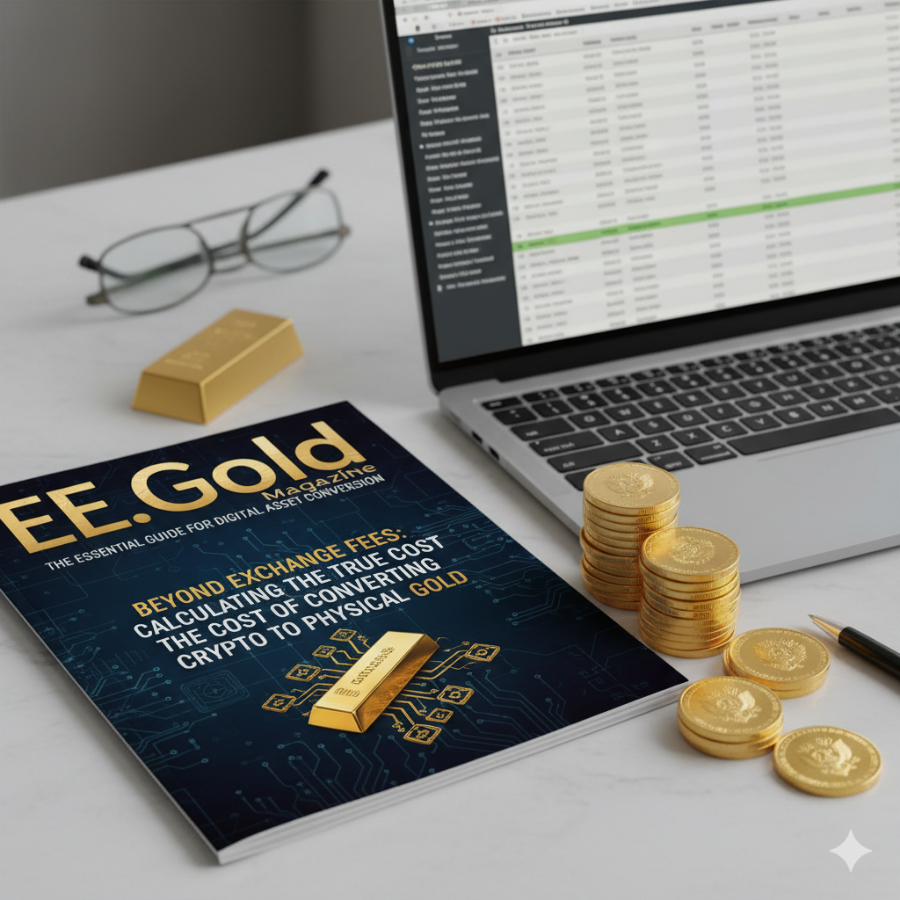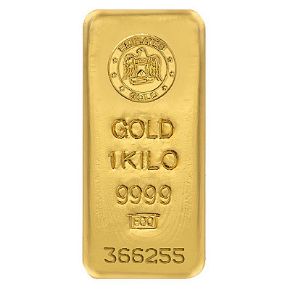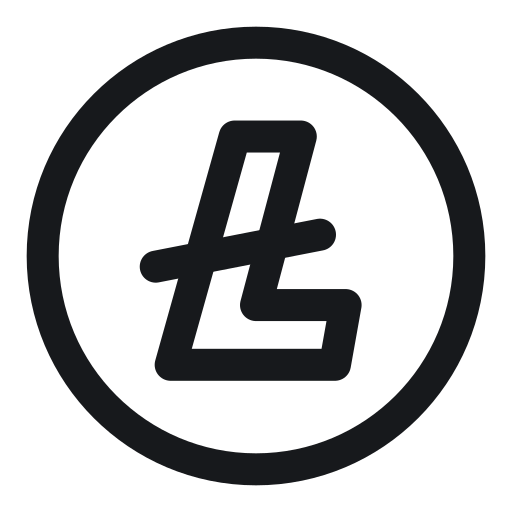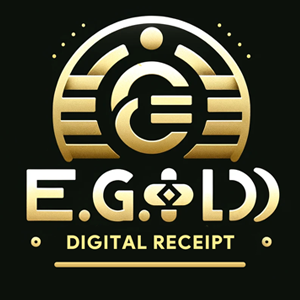
Converting cryptocurrency to physical gold is an increasingly popular strategy for investors seeking to diversify their portfolios or hedge against market volatility. While exchange fees are often the most visible cost, the true expense of this process involves several hidden factors. Understanding these costs is crucial for making informed financial decisions. This article explores the full spectrum of expenses involved in converting crypto to physical gold, beyond just the exchange fees.
Exchange Fees: The Obvious Cost
When converting cryptocurrency, such as Bitcoin or Ethereum, to physical gold, most investors start with a crypto-to-fiat exchange. Platforms like Coinbase, Binance, or Kraken typically charge fees for converting crypto to fiat currency (e.g., USD, EUR). These fees vary widely:
Trading Fees: These are typically a percentage of the transaction (0.1% to 0.5% on major platforms) or a flat fee for smaller trades.
Withdrawal Fees: Transferring fiat to a bank account often incurs additional charges, ranging from $1 to $25 depending on the platform and withdrawal method.
Spread Costs: Exchanges often apply a spread—the difference between the buy and sell price of a cryptocurrency—which can add 0.5% to 2% to the cost.
For example, converting $10,000 worth of Bitcoin to USD might incur a 0.2% trading fee ($20), a $10 withdrawal fee, and a 1% spread ($100), totaling $130 in direct exchange costs. However, this is just the beginning.
Conversion to Gold: Dealer Premiums and Costs
Once the cryptocurrency is converted to fiat, the next step is purchasing physical gold from a dealer or broker. This introduces additional costs:
Premiums Over Spot Price: Gold dealers charge a premium above the spot price (the market value of gold per ounce). Premiums typically range from 3% to 10% for coins or bars, depending on the dealer, product, and order size. For instance, buying a 1-ounce gold coin at a spot price of $2,500 might cost $2,650 after a 6% premium ($150).
Shipping and Insurance: Physical gold must be delivered, and shipping fees can range from $10 to $100 based on location and order size. Insurance, often 1% of the gold’s value, adds to the cost. For a $10,000 order, insurance might cost $100.
Taxes: In some jurisdictions, purchasing physical gold incurs sales tax or VAT, which can add 5% to 20% depending on the region. For example, a 7% sales tax on a $10,000 gold purchase adds $700.
Storage and Security Costs
Owning physical gold requires secure storage, which introduces ongoing expenses:
Home Storage: Storing gold at home may seem cost-free but carries risks of theft or loss. Investing in a high-quality safe can cost $200 to $2,000 upfront, with maintenance or upgrades adding to the expense over time.
Vault Storage: Professional vault services, such as those offered by BullionVault or Brinks, charge annual fees, typically 0.5% to 1.5% of the gold’s value. For $10,000 worth of gold, this equates to $50–$150 per year.
Insurance: If not included in vault fees, insuring physical gold against loss or theft can cost an additional 1% annually ($100 for $10,000 worth of gold).
Market Timing and Volatility Risks
The crypto and gold markets are both volatile, and timing can significantly impact costs:
Crypto Price Fluctuations: Cryptocurrencies can swing 5–10% in a single day. A delay between selling crypto and purchasing gold could result in a loss of value. For example, if Bitcoin drops 5% during the transaction process, a $10,000 holding could lose $500.
Gold Price Volatility: Gold prices also fluctuate, though typically less dramatically (1–2% daily). A sudden spike in gold prices between fiat conversion and purchase could increase costs.
Exchange Rate Risk: If converting between currencies (e.g., USD to EUR for a European gold dealer), forex fees and exchange rate fluctuations can add 1–3% to the cost.
Hidden Opportunity Costs
Converting crypto to gold also involves opportunity costs that are often overlooked:
Lost Crypto Appreciation: Cryptocurrencies have historically shown high growth potential. Converting to gold means forgoing potential gains if crypto prices rise. For instance, if Bitcoin appreciates 20% in a year, a $10,000 conversion to gold misses out on $2,000 in potential gains.
Liquidity Trade-Off: Physical gold is less liquid than cryptocurrency. Selling gold to access cash may involve additional premiums, shipping costs, or delays, impacting financial flexibility.
Time and Effort: Researching reputable exchanges, dealers, and storage options requires time and effort, which has an implicit cost for busy investors.
Tax Implications
Taxation can significantly affect the overall cost:
Capital Gains Tax: Selling cryptocurrency often triggers capital gains tax, which varies by country (e.g., 0–37% in the U.S. depending on income and holding period). A $10,000 Bitcoin sale with a $4,000 gain at a 20% tax rate incurs $800 in taxes.
Gold Purchase Taxes: As mentioned, some regions impose sales tax or VAT on gold purchases, further increasing costs.
Future Sales: Selling gold later may also trigger capital gains tax, compounding the tax burden over time.
Example: Calculating the True Cost
Consider an investor converting $10,000 of Bitcoin to physical gold:
Exchange Fees: 0.2% trading fee ($20), 1% spread ($100), $10 withdrawal fee = $130.
Gold Purchase: 6% dealer premium ($150), $50 shipping, $100 insurance, 7% sales tax ($700) = $1,000.
Storage: Annual vault fee of 1% ($100/year).
Taxes: 20% capital gains tax on a $4,000 crypto gain = $800.
Total First-Year Cost: $130 + $1,000 + $100 + $800 = $2,030 (20.3% of the initial $10,000).
This excludes potential market timing losses or opportunity costs, which could push the effective cost higher.
Mitigating Costs
To minimize the true cost of converting crypto to gold:
Choose Low-Fee Exchanges: Compare platforms to find those with competitive trading and withdrawal fees.
Buy in Bulk: Larger gold purchases often reduce per-unit premiums and shipping costs.
Consider Tax-Exempt Regions: Purchase gold in jurisdictions with no sales tax or VAT on precious metals (e.g., certain U.S. states or countries like Switzerland).
Time the Market Carefully: Monitor crypto and gold prices to optimize conversion timing.
Evaluate Storage Options: Balance the cost and security of home storage versus professional vaults.
Converting cryptocurrency to physical gold involves far more than exchange fees. Dealer premiums, shipping, taxes, storage, market volatility, and opportunity costs all contribute to the true expense. By carefully considering these factors and planning strategically, investors can reduce costs and make more informed decisions. Always research thoroughly and consult with financial advisors to align such conversions with your broader investment goals.
NOTE
This Content is the copyrighted content of EE.GOLD. All rights are reserved. You are welcome to share or use our content only by including direct links to our website. Any other form of reproduction, distribution, or use without proper attribution is strictly prohibited.
This Content is intended solely for educational purposes. The information provided does not constitute financial or investment advice.
Please note that Digital Storage Receipt, Secure Storage Solutions, and Physical Gold Sales are the only services offered by EE.GOLD.
We strictly adhere to government regulations and are firmly against all illegal financial or investment activities globally.
For further inquiries, feel free to contact us through our official channels.










.png)

